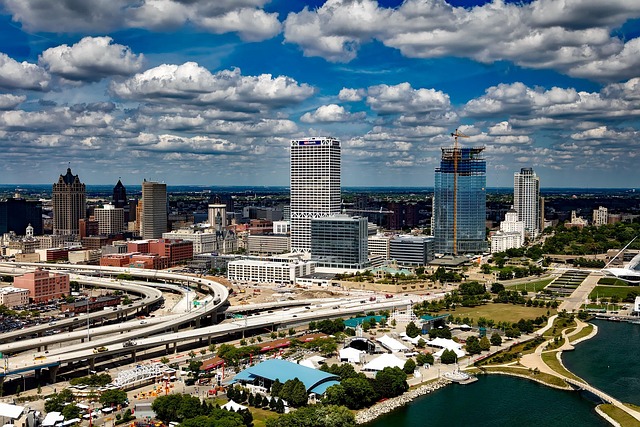4 Types of Detention You May Not Know About

Every country has its laws, agreed on some general matters like criminal acts. People who live in that state must respect these laws, whether they are citizens or not. If they violate any law or disturb a legal action, the state has the tools to administer justice.
One of these tools is detention. It relates to deprivation of liberty against one’s will (but with reason and by the law). But in most cases, it’s an entirely justified measure.
Still, you should know that detention is not the same as arresting. The officers usually take detainees to detention centers rather than prison.
More on other differences between detention and arrest, read below:
In some situations, the law entitles a detainee to be released and wait for a trial out of custody. If that’s possible, there must be some guarantee that the person won’t escape, avoid trial, or otherwise interfere with the process.
The standard method for that is paying a bail bond. That’s as a cash pledge you give to the government. It will ensure that you’ll appear in court and act by the law until that happens.
#1 Detention for Questioning
Police officers enforce the law of each country and strive to ensure that citizens obey it. If policemen suspects you are committing or have done a crime, they have the right to stop you on the street, detain you, or take you to a detention center.
The procedure depends on what you are potentially guilty of.
It doesn’t mean you’re automatically labeled as the culprit; you’re just under suspicion. It’s up to the investigation to show whether the claim against you is justified or not. From the moment police stop you and start asking questions (noting that you are not free to go), you are in some form of detention.
This detention is temporary and can last only a few minutes, up to a few weeks, depending on what you are suspected of. Suppose there is no official charge against you. In that case, the police may not hold you for more than 48-72 hours. During that period, the authorities must bring a charge against you. Otherwise, you’re free to go.
During the interrogation, you have the right not to answer questions and to ask for a lawyer. You won’t be liable for this, but you’ll stay in detention until finding evidence that will affect the further process in court.
Lack of any evidence means you’re free to go.
#2 Immigration Hold
Migrations around the world happen almost every day. If enforced legally, in the sense that people cross borders and enter the country legally, these movements are desirable.
The ‘mixing’ of the population is good for the economy and industry. It also has many benefits for all those who leave their homeland in search of a better life.
On the other hand, some want to do the same thing, only in an illegal way. For that reason, they are also called illegal migrants or immigrants.
In fact, by entering a country without the necessary documentation, they violate the law. Even though they have the papers, the very way of crossing the border could be illegal.
Some institutions deal only with breaking the law related to migration. It means that their officers have the right to stop a person and ask for proof of their migration status.
Asking for proof of identity is the right of every police officer. Anyone pulled off must identify themselves with any official document.
#3 How Long Can You Be Detained?
Without ID, citizenship, and valid migration status, authorities will take you to an immigration detention center. You can stay there even if you have documents, and you legally entered the country (by plane, bus).
Even if the police pull you off at home or work, they may put you in custody if you don’t have a valid proof of migration status.
Authorities can keep you in the detention center only until they find out your identity if you have entered the country legally. They have their ways to verify the documents you have. But if you are suspected of illegal entry, visa violation, or unauthorized arrival, your stay at the detention center may take some time.
In the case of immigration detention, a time frame of 48-72 hours must also be met. During this period, the court should decide what to do with you.
The options are to be put in immigration proceedings or held until further notice. For the last one, there must be a reasonable suspicion in the form of a criminal offense.
As seen at this site, you have the right to ask for a bond hearing (or paying it if you can) in case of the immigration detention. You should be familiar with the law of the country where you’re detained and know your rights.
#4 Emergency Hold
A particular type of detention also applies to involuntary detention, but in situations where a police officer has a well-founded right to suspect that you are risky to yourself and others.
These are most often conditions after excessive use of alcohol, drugs, or opiates, or when you have a severe mental issue that endangers public order and peace.
Check the following source to find out which mental conditions could be a trigger for emergency hold:
https://www.verywellmind.com/can-i-be-committed-to-a-mental-hospital-against-my-will-1067263
If drunk or drugged, you can be in detention until you got sober. If you haven’t committed any crime and don’t pose a threat, you leave without any sanctions.
But if you committed any violation, you stay in custody until further notice. Experts will determine if you are eligible to be detained or hospitalized in the case of mental health issues.
If you ever find yourself as a detainee, know that you have the right to legal aid. You can hire lawyers by yourself or get one assigned by a court.
Make sure to be familiar with all other rights in custody, including a bail bond. That will come in handy if you ever come into this not so pleasant situation.






